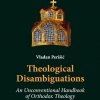Sidebar
Site Map
A great man is one who collects knowledge the way a bee collects honey and uses it to help people overcome the difficulties they endure - hunger, ignorance and disease!
- Nikola Tesla
Remember, remember always, that all of us, and you and I especially, are descended from immigrants and revolutionists.
- Franklin Roosevelt
While their territory has been devastated and their homes despoiled, the spirit of the Serbian people has not been broken.
- Woodrow Wilson
Prva Srpska Pravoslavna Crkva u Americi, Jackson
Mladi Amerikanci srpskog porekla prihvataju obe kulture
Šta se može očekivati od mladih Amerikanaca srpskog porekla na političkom i poslovnom planu? Branko Mikašinović razgovarao je o tome sa dvoje mladih, koji trenutno studiraju u Vašingtonu. Katarina Ilić iz Kalifornije studira na Univerzitetu Džordž Vašington, dok Vladimir Petrović iz Čikaga student Američkog univerziteta.
Glas Amerike, Otvoreni Studio
Belgrade with Boris Malagurski
This is the story of Belgrade, the dazzling capital of Serbia. People from all over the world are attracted to this city for its charm and beauty. From the quiet cafes, to the sparkling nightlife, Belgrade is a city that never sleeps.
It has magnificent architecture, peaceful parks, splendid restaurants with authentic Balkan food, remarkable art and electrifying museums. A city between East and West, with a turbulent history to tell. But what makes Belgrade the most appealing is the spirit of its people.
Pokloničko putovanje pravoslavnih Amerikanaca
Međunarodni radio Srbija
Pokloničko putovanje pravoslavnih Amerikanaca (audio)
Autor: Olivera Milovanović
A Journey Through Time and History on a Pilgrimage to Holy Mountain, Greece, and Serbian Lands
.Kulturno nasleđe
Међународни радио Србија - Međunarodni radio Srbija
Култирно наслеђе - Kulturno nasleđe (audio)
Интервју са др Соњом Савкић, која је докторирала на Националном аутономном универзитету у Мексико Ситију на прехиспанским цивилизацијама Мезо-Америке.
Intervju sa dr Sonjom Savkić, koja je doktorirala na Nacionalnom autonomnom univerzitetu u Meksiko Sitiju na prehispanskim civilizacijama Mezo-Amerike.
.Serb families honour their saints with slava celebrations
Slava is the celebration of the patron saint for each family in Serbia. Different families have different saints, handed down through the generations.
The tradition is a centrepiece of family life - festivities last three days, and include feasts and dancing as well as religious ceremonies.
The BBC's Guy De Launey joined one family as they marked the day of St Sava, also the patron saint of Serbia.
The Close-up series focuses on aspects of life in countries and cities around the world. What may seem ordinary and familiar to the people who live there can be surprising to those who don't.
.Serbian Americans
from: http://www.everyculture.com/multi/Pa-Sp/Serbian-Americans.html
MAJOR IMMIGRATION WAVES
While the earliest Serbian immigrants came to the United States after 1815, the largest wave of immigration took place from 1880 to 1914. There were arrivals between the two world wars followed by refugees and displaced persons after World War II. Lastly, arrivals since 1965 have included the influx resulting from current events in the former Yugoslavia. Generally speaking, it is difficult to determine the exact number of Serbs who came to America in the early waves of immigration because immigration records often did not distinguish between various Slavic and, especially, South Slavic groups. The term Slavonic was most often used in recording immigrants from the various parts of the Eastern Europe. Church records are more helpful in distinguishing the Serbs, for these documents clearly state religious orientation of the parishioners. In addition, census statistics compiled before World War I had further confused the issue by listing immigrants by their country of origin. Thus, the Serbs could be included with the Croats, Slovenians, Austro-Hungarians, Turks, Bulgarians, or Romanians, or simply listed as Yugoslavs after 1929, when the kingdom of the Serbs, Croats, and Slovenes was renamed Yugoslavia. According to the 1990 U.S. Census figures, there are 116,795 Americans of Serbian origin living in the United States. It is impossible to tell, however, how many out of the 257,995 who in 1990 reported Yugoslavian origin actually have Serbian ancestry. It can safely be assumed that the total number of Serbian Americans today might vary from 200,000 to 350,000 and up to 400,000, according to some estimates. By American standards, this is a rather small immigrant group.
.


